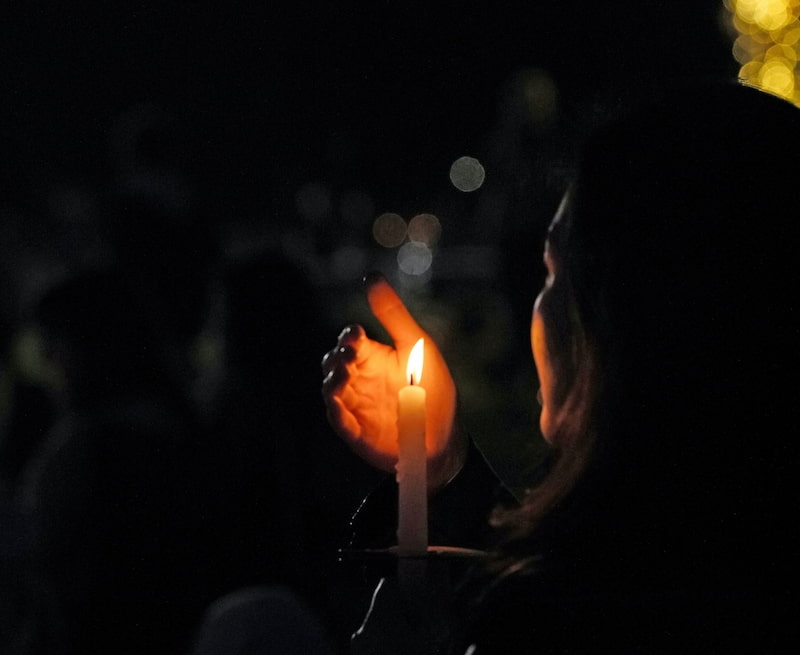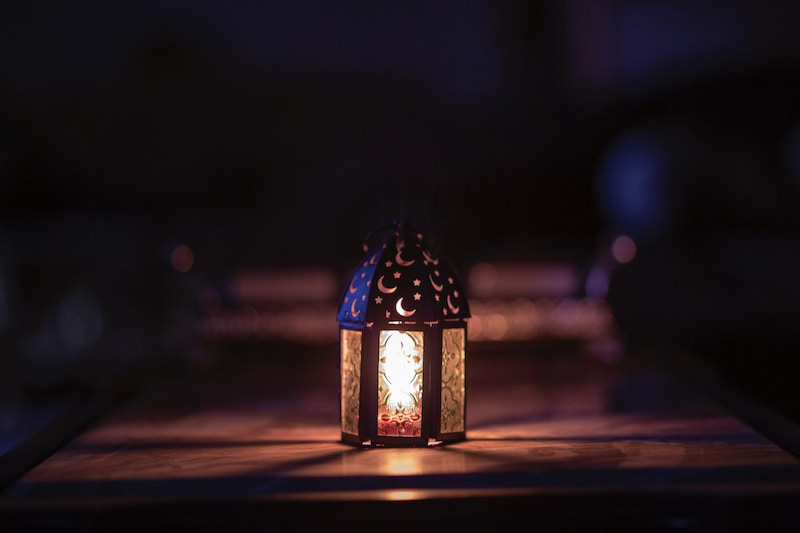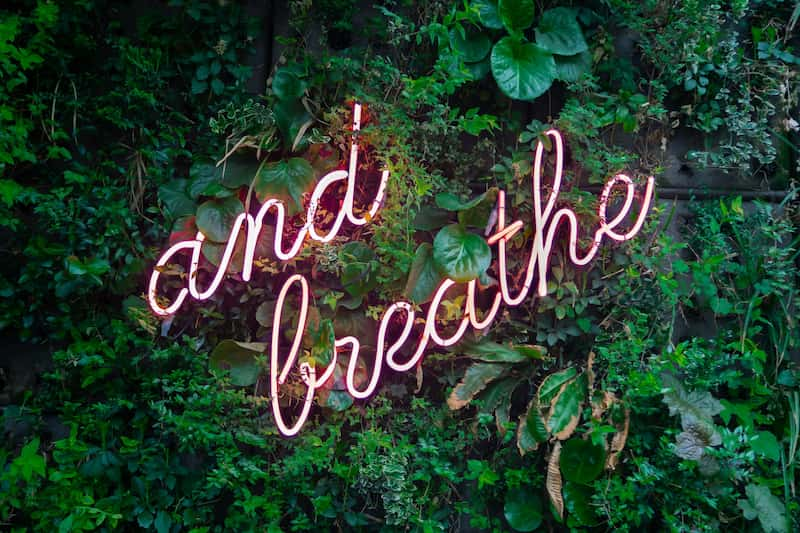Guest writer for Wake Up World
Endless to-do lists. Appointments. Unfinished tasks. Responsibilities galore. Balancing home life and work commitments. The grind and hustle of daily life …
Are you tired and overwhelmed yet?
If you’re like most people living in our modern society, there’s a lot of stuff to get done. Even “slowing down” can feel like another task on our endlessly long list of things to complete by the end of the week.
What I am interested in, however, is this question:
How can we stay internally connected in a world that is dragging us left and right?
Do spiritual practices really have to be as elaborate as they’re made out to look on social media and in many well-meaning books and courses?
As someone with a highly sensitive nervous system who is prone to exhaustion and burn out, I ask myself this question all the damn time.
And I’m going to share with you what I’ve learned.
What Are Spiritual Practices (aka., What Do I Mean By Them)?

Spiritual practices are the meaningful rituals that we engage in which move us past the fog of the mind and ego into the realm of Soul and Spirit.
Every race, culture, and period of history have utilized spiritual practices, from the afterlife rituals performed for the dead back in the Paleolithic area, all the way to the modern use of meditation apps and the cross-cultural use of mala beads for chanting and prayer.
What is the Purpose of Spiritual Practices?

When we engage in spiritual practices, we’re stepping out of identification with thought and form, and into the realm of the eternal Now or present moment (which is the only moment in which we’re actually truly alive).
In the words of scholar and writer Georg Feuerstein,
(The) purpose of spiritual practice is to ‘deconstruct’ our carefully constructed consensus reality so that we can recover the Reality that lies beneath, or beyond, all our signs and symbols.
Spiritual practices, therefore, are subversive and liberating in nature, acting as a “reset button” to the automaton-like pull of the ego self that we all drag around every day.
Through our spiritual practice, we open a gateway to eternity.
Why Spiritual Practices Aren’t All We Need

Many people who come to spiritual practice are frightened by their feelings. They hope meditation will help them to transcend the messiness of the world and leave them invulnerable to difficult feelings. But this is a false transcendence, a denial of life. It is fear masquerading as wisdom.
– Jack Kornfield
It’s tempting to think that doing something like saying a prayer is all we need to find a sense of true wellbeing. But the reality is that we are both human and divine.
We are carnal mammals ruled by an over-developed prefrontal cortex, and unique manifestations of eternal and ever-present Spirit.
Spiritual practices aren’t all we need because we also need psychological development, growth, integration, and healing.
Trying to use spirituality to cover up our feelings of shame, anger, grief, and fear is to commit what is known as a spiritual bypass: a sophisticated feel-good form of avoidance with a sparkly spiritual exterior that doesn’t solve our suffering deep down.
In fact, spiritual bypassing makes us feel worse in the long-term because it’s suppressing our pain, which feeds the shadow self within us that will eventually rear its head and cause chaos in our lives (through addictions, self-sabotage, explosions of anger, and worse).
Work Through Your Mental Sh*t to Avoid This Issue

Without developing a healthy sense of self, we can also run into a problem that philosopher Ken Wilber coins as the pre-trans fallacy – that is, confusing mystical experiences that we may have during spiritual practice with regressive infantile experiences of oneness that lack a sense of personal accountability or responsibility (just like when we were children).
Pre-personal (infant/child) states are different from transpersonal (or mature adult) states of consciousness, in that the pre-personal states lack self-awareness and matured ego-development. If we don’t work with the psychological aspect of our being to develop mature adult consciousness, we can fall into the trap of using any spiritual experience we have during our spiritual practices to fuel (infantile or immature) problems like the spiritual narcissism and spiritual materialism.
So in short, you can’t just depend on your spiritual practice to fix all your problems. It’s tempting, but don’t do it. You’ve got to work with your mind as well.
You can’t go beyond the ego without first developing a healthy and individuated ego.
Mateo’s article on Why Meditation Isn’t Enough as well as my article on The Individuation Process can help you to explore this more. Psychotherapy, if you can afford it, helps as well.
I know that if you’re reading this article you’re probably a busy and overwhelmed person, so one simple way to slowly work through your mental baggage (which is of course not a replacement for therapy) if you struggle with issues like anxiety and depression, is to practice inner work through journaling. I recommend these three highly rated journals of ours to get you started:
As these are digital journals, you can easily edit them on your phone and slowly work through inner blockages whenever it’s convenient for you.
7 Simple Spiritual Practices For Busy and Overwhelmed People

Not everyone has the luxury to spend two hours every morning dedicated to an Instagram-worthy spiritual ritual. Thankfully, spiritual practices don’t actually have to be complicated or long-winded.
As a self-employed writer and co-founder of this website, running a house, cooking food, keeping up with chores, and dealing with numerous other adult responsibilities with a sensitive body and neurodivergent mind (and this is without kids), I often find myself low on time and energy.
Here are some of my favorite low-energy, low-on-time spiritual practices (P.S. just pick one or two, don’t feel the need to do all of them):
1. Taking a walk in nature / mindfulness

On most mornings, I like to take a thirty minute walk outside in as much nature as I can find. Not only does this get my body moving and keeps me relatively fit, but it can also become a mindfulness and ecotherapy practice. Three-in-one baby!
Listening to the birds, feeling my feet against the ground, watching the sky, smiling at people – walking provides an opportunity for active mindfulness. I’m not saying that I religiously practice mindfulness (it’s also a time for me to listen to podcasts or audiobooks), but I love feeling connected to my body and nature when the mood hits me.
If it’s possible, instead of hitting the gym, try taking a walk or jog outdoors. Not only is it free, but it’s also a wonderful way to reconnect with your deeper Self.
2. Slowing down and making a cup of tea / gratitude

You probably drink tea or coffee, right? Well why not make that simple daily habit into a gratitude ritual?
Every time you pour your tea or coffee into your cup, do so mindfully, smelling the aroma wafting into the air. Feel the heat of the cup beneath your hands as you raise it to your mouth and focus on the taste of the tea/coffee as it washes through you.
Then, contemplate what you’re grateful for right now. Are you thankful for the people who made it possible for you to drink this cup of tea or coffee? What about your loved ones? Or something wonderful that happened to you yesterday? There are endless things to be grateful for, even if your life is in a funk right now.
So here we have a three-in-one low-energy, low-effort practice – you get to enjoy a cup of tea or coffee, as well as practice gratitude (which is proven to increase happiness), and mindfulness (which is proven to decrease stress) at the same time!
3. Keeping a five-minute journal

Five minute journals are wonderfully simple and elegant ways to reconnect with your inner self in an easy way, on a daily basis.
Some five-minute journals you might to check out are these ones:
- The Five Minute Journal by Intelligent Change
- The 5 Minute Journal by Artfan
- The 5-Minute Gratitude Journal by Sophia Godkin
If you don’t want to spend a dime, you can always use the note taking app on your phone (or get a free journal app) and spend a few minutes typing out your thoughts, feelings, and discoveries.
I find that writing my journal entries by hand can sometimes be quite time consuming, so when I’m feeling tired and unmotivated, I generally tend to jot down my thoughts on my phone. However, there is a certain intimacy that writing with a pen and paper cannot be replicated by typing on a phone. So try both and see what you like.
Here are some simple journaling prompts that you might like to answer:
- What’s the most important deep insight you’ve had in the past month?
- What habit that will take 2% of your energy will give you a lot more joy today?
- If you could do one thing to take better care of your inner child, what would that be?
- Reflect on a mental story or emotion you’re currently attached to. Why doesn’t it define you?
- Name one synchronicity you experienced today. What did it mean for you?
4. Take a longggg exhale / breathwork

Long exhales activate the parasympathetic nervous system which is responsible for inducing feelings of relaxation and well-being.
If you don’t have enough time to remember yogic breath sequences or do a set of breathwork exercises, just take a long exhale. I like to breathe in through my nose and then purse my lips together and blow out (like I’m blowing out candles). Doing so activates the vagus nerve which soothes the nervous system.
Symbolically and spiritually speaking, the exhale represents letting go and surrendering to the Divine, so it’s a simple but meaningful spiritual practice when done mindfully and intentionally.
5. Choose a simple mantra to ground and center yourself

Mantras have an ancient significance in numerous religions, but you don’t have to belong to any particular religion to make use of them.
Some of my favorite simple mantras are the following:
- So Hum (or Soham) – What I love about this mantra is that you can time it with the breath. Breathing in is ‘so’ and breathing out is ‘hum.’ So Hum translates to “I am That” or in other words, “I am One with Reality.”
- Om Mani Padme Hum (om mah-nee pahd-mey hoom) – I find this beautiful mantra to be quite grounding but expansive at the same time. It’s often translated to mean “The jewel of consciousness is in the heart’s lotus.”
- I Am – This mantra in English is simple but profound. Learning how to rest in the I Am (or the Source of that which you truly are) is a central practice of self-inquiry and jnana yoga or the path of Self-realization. I recommend slowly saying this mantra and resting in the space that arises afterwards. Don’t fill in the space with “I am this” or “I am that,” just rest in the purely felt sense of I Am.
If you have any other simple mantras you love, feel free to share them in the comments. You can also read my article on meditation mantras for more ideas.
6. Music meditation as you drive, walk, or do chores

Let’s face it, meditation can be difficult for a busy and overactive mind (which I’d guess is probably 99% of Westerners). Sitting in silence for long periods of time can feel unsatisfactory and difficult to commit to, especially when you feel tired or overwhelmed.
If you struggle with meditation, why not practice music meditation? Music is a pleasant way of helping us to be present. Depending on what music you choose, it can even induce mystical types of experiences which can give you a glimpse beyond the separate sense of self into the Soul and True Nature.
Softly playing music in the background while you do chores or catch the subway or walk your dog can be a beautiful and simple way to connect to your deeper Self. Music meditation is still meditation. Meditation isn’t only confined to sitting on a mat once or twice a day – true meditation can be any and every moment.
If you’re not sure what music to play, I personally love Deuter, Deva Pemal, and any music with singing bowls or Tibetan throat singing (very grounding and transcendental!).
If you love the haunting sounds of wolves, you might also like to check out the Spotify playlist I’ve created with Mateo for this website here.
7. Prayer said at any time or any moment

Prayer doesn’t have to be religious. You can pray to whatever higher Source you believe in. You can pray to your ancestors. You can pray to the earth or whatever brings you a sense of comfort and joy.
Often we use prayer as a “hail Mary” last resort when shit hits the fan in life. But prayer can be a beautiful and meaningful conversation between you and the Divine.
Perhaps the best thing is that prayer can happen at any time or any moment. You can be sitting at your desk at work and pray. You can be waiting in line at the grocery store and pray. Prayer is a beautiful gift that serves many purposes.
You can pray for yourself, you can pray for your loved ones, you can pray for the earth, for peace, for clarity, for healing, for the end of wars, for resolution, and for anything on your heart and mind.
While prayer isn’t a substitute for compassionate action, it can open the heart, liberate the mind, and attune the Soul to the whispers of the Divine.
Here is a simple prayer to get you started that will probably take you about thirty seconds or less to say:
Dear Life/Source/Divine, thank you for the many blessings in my life. I pray for clarity, wisdom, and love. Help me to make wise decisions. May my loved ones receive everything they need to thrive. May my community flourish and may my neighbors feel safe. May this world find peace and healing. Thank you, thank you, thank you.
***
If you’d like more guidance on your spiritual journey, you might like to see these free guides:
- How to Start Your Spiritual Journey (7 Illuminating Steps)
- What is Spirituality? (& How to Choose YOUR Path)
- Spiritual Awakening: 23 Major Signs + Symptoms
Spiritual practices are not separate from our daily life – life IS the spiritual practice. In other words, anything you do in life can become meaningful if you draw awareness to it.
Do you have any recommendations for simple spiritual practices for busy and overwhelmed people? If so, I would LOVE to know. 🙂 Drop a comment below and share with me!
About the author:
Aletheia Luna is a prolific psychospiritual writer, author, and spiritual mentor whose work has touched the lives of millions worldwide. As a survivor of fundamentalist religious abuse, her mission is to help others find love, strength, and inner light in even the darkest places. She is the author of hundreds of popular articles, as well as numerous books and journals on the topics of Self-Love, Spiritual Awakening, and more. See more of her work at lonerwolf.com.
This article, 7 Spiritual Practices for Busy, Overwhelmed People, was originally published on lonerwolf.com, reproduced with permission.

If you've found value in our articles, we invite you to support the release of our brand-new book, "Gratitude Practices for Kids: A Practical Guide for Adults to Instill a Spirit of Appreciation and Positivity in the Next Generation."
"Gratitude Practices for Kids" brings together over 25 innovative and accessible practices designed to enhance gratitude in everyday life. This comprehensive guide is backed by 17 scientific studies, ensuring each concept is grounded in research, underscoring our commitment to nurturing growth, emotional intelligence, and positive interactions between adults and children.
We encourage you to opt for the paperback version to celebrate this new release. Dive into its fresh pages away from digital distractions, allowing you to immerse yourself in the transformative practices it offers.
Over recent years, Wake Up World has faced significant online censorship, which has impacted our financial ability to operate. Moving into book publishing represents a strategic step to secure the ongoing funds needed to continue our mission. By purchasing Gratitude for Kids, you help us keep our content free and accessible to everyone, avoiding needing a paywall. With over 8,500 articles published in the last 13 years, we remain dedicated to keeping our valuable content open to all.










